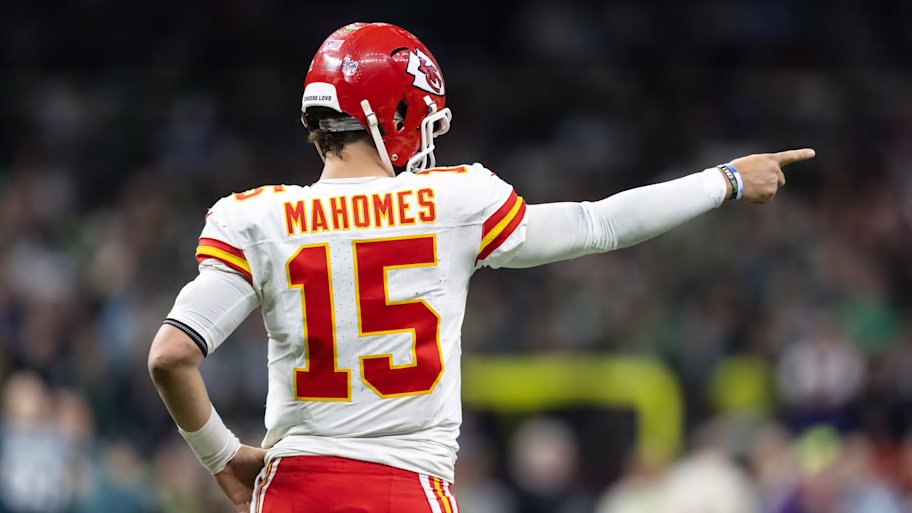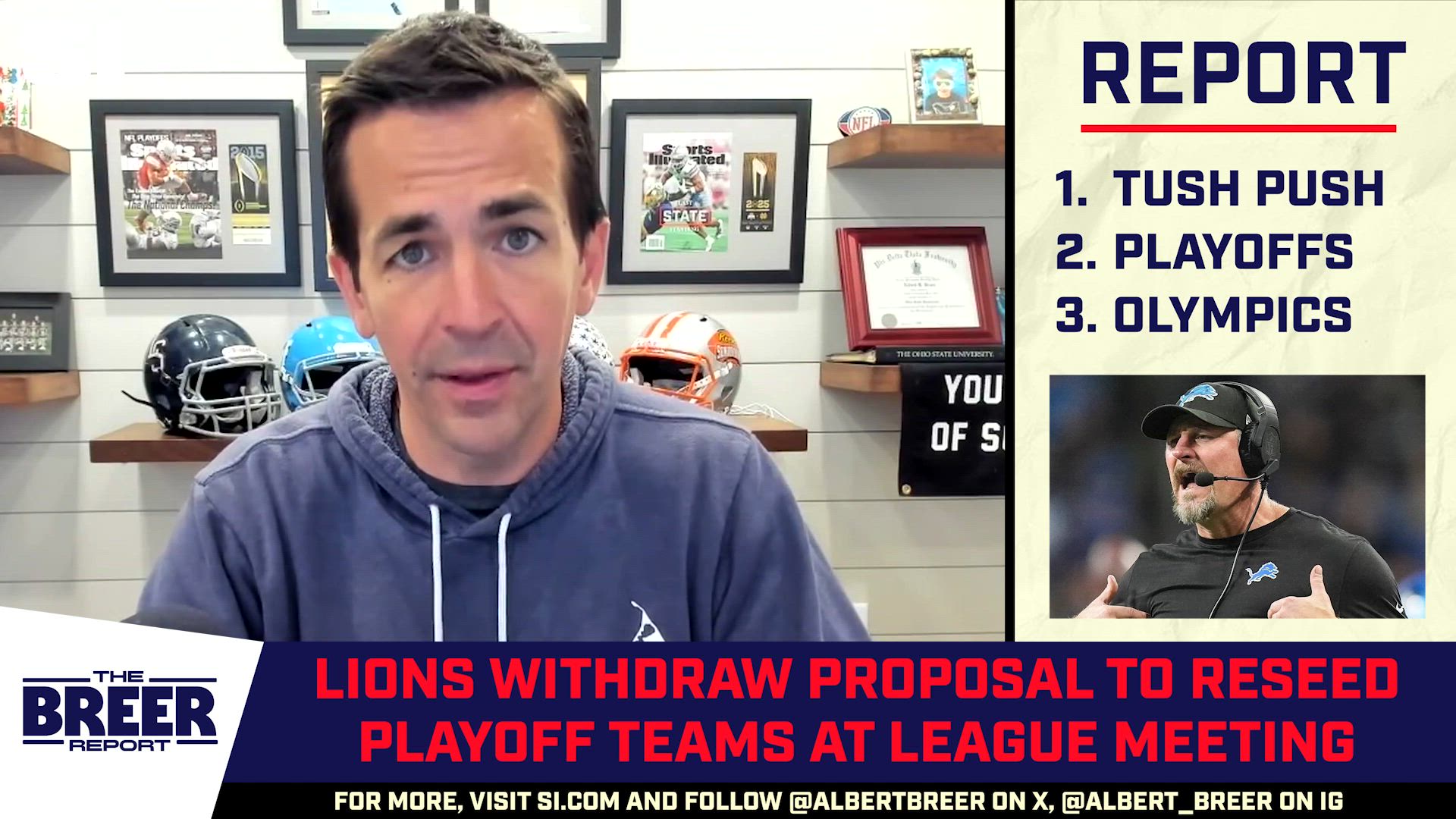

I have very little doubt in my belief that the best football players in the world reside in the United States. I have significantly less belief in the public’s fakakta belief that we are going to send a Dream Team of 30-something-year-old NFL players to the Olympics and dominate as if it were the 1992 iteration of Michael Jordan, Larry Bird and Karl Malone.
Since NFL owners voted to approve players being able to represent their country in the 2028 Games, we have started assembling our own fantasy collection of who we would send to the XXXIV Olympics, fitting ourselves for a gaudy Polo prep school blazer and a chunky gold medal along the way. This kind of exceptionalism can be wonderful and galvanizing, but it can also be incredibly stupid. As usual, we’ve gotten ahead of ourselves without first considering the mechanics of how all this is going to work, nevermind a few sobering realities.
The first and most important issue is that flag football is a different sport than NFL football. It’s like saying that the best NCAA lacrosse players will wind up being great indoor or box lacrosse players. Or that the best NFL players would be great Canadian Football League players. Or that Tadej Pogačar should start doing the BMX halfpipe at the X Games. Or that great Australian dancers will be considered, you know, actual great dancers when compared to people not isolated on a lonesome continent (sorry, RayGun).
Slightly different skill sets are going to be valued. The field shrinks. Physicality is somewhat removed from the equation. And, after watching more competitive flag than anyone should have to over the past week, the advantage, to me, seems to be in those who understand the nuances of the rules and can manipulate them in a way that gains an advantage. That’s why I don’t feel like Darrell Doucette, a star flag football quarterback who represented the U.S. at the most recent IFAF World Championships in Finland, was absurd in saying he felt he was more valuable than Patrick Mahomes in this particular sport. A stretch? Perhaps. But just like Doucette wouldn’t be as valuable in the NFL because he doesn’t know how to fall in the right way in order to earn a 15-yard penalty (ducks), a gold medal is going to come down to those who are steeped in the uniqueness of the genre.
This was on display when the United States absolutely pummeled Austria for its most recent gold medal on the world stage without the aid of any NFL players. Austria played a kind of stationary, pro-style game familiar to NFL fans with a Ben Roethlisberger–looking fella sitting deep in the shotgun and firing passes downfield. The United States was beautifully amoebic, with three or four players capable of throwing the ball touching it on nearly every play.
This is where I become skeptical of an NFL-dominant roster. With the Olympics beginning on July 14, 2028, we’d be asking NFL players most capable of throwing, cutting, catching and running to come off a grueling season that, by then, may be 20 games long. From February to July, they will have to get up to speed on a sport that some of these players have been playing—and winning every single IFAF gold medal in—for more than a decade. We’re going to have (hopefully) a flag-specific coach tasked not only with game planning for the complexities of an international tournament but having to explain to Tyreek Hill that he must raise his hand and declare himself a blitzer on defense. These players will be exposed to relentless stop-and-start football maneuvers that they’ll have to willingly undertake during typical rest-and-recovery periods, jeopardizing the NFL season to come.
Think about any player you would want on a flag-specific roster. Lamar Jackson, for example. Jackson is an incredible talent, but he cannot break the line of scrimmage as a runner like he does in the NFL unless he first gives up the football then regains it as a ballcarrier (still worth it, probably, but something many are not considering). Mahomes? He may end up as the greatest NFL player ever. But can he be adequately weaponized as a wide receiver once he gives up the football? Or, would you sacrifice the versatile offense the U.S. team currently has and chance Mahomes with seven seconds in the backfield against a free blitzer?
More sensibly, our best options would be the likes of Amon-Ra St. Brown, a receiver with a demonstrated ability to throw the football (though some have speculated St. Brown could play for Germany). Justin Jefferson and Jakobi Meyers (recruited as a quarterback) also come to mind. In another era, Antwaan Randle El and Terrelle Pryor would also seem to be ideally suited for this kind of transition.
You would also want cornerbacks recruited as wide receivers out of high school, i.e., a Richard Sherman archetype. Cooper DeJean, a high school quarterback; Christian Gonzalez, a four-star wide receiver and corner; and Trevon Diggs, a 1,000-yard wide receiver in high school who was recruited at the position to Alabama, should also be in consideration.
This is why I imagine the NFL left the selection of these teams to the actual USA Football governing body. Pressing the pedal on this as a global marketing opportunity for the NFL and stockpiling the roster with NFL players sets the U.S. up for a ridiculously embarrassing situation in which we become the reverse Soviets from the Lake Placid Games. A well-coached, flag-specific team with the right players has an edge over a group of simply the best athletes who play a familiar yet semi-distant version of the sport.
The NFL wants flag football to catch on because it takes away the complications of football as a “backyard” sport that can be played around the globe in countries where it's utterly nonsensical to spend available funding on thousands of dollars worth of helmets and shoulder pads. So the temptation is obviously there—especially since the NFL commissioner plays a role in helping construct the board of USA Football—to try to create the kind of globally iconic squad that could resemble the 1992 U.S. men’s basketball team, widely believed to be the best ever constructed. The issue becomes, with a nascent project like this, that internal politics, possible political strife happening in the world at the time and the non-football people in the room, that a team closer to the disastrous 2004 U.S. men’s basketball team comes into existence (part of the reason the U.S. team could not field a competitive roster in ’04 was due to security concerns after the September 11 attacks).
Former NBA commissioner David Stern said of the 2004 Olympics in a book titled BASKETBALL: A LOVE STORY: “2004 affected our thinking about this whole Olympic experience because it became clear that even though we were trying to be good partners and leave it to USA Basketball, that [the NBA] was going to ultimately get blamed for anything that happened. So we made the determination that we had to take a more active role in the entire Olympic experience.”
This is the decision that truly lies at the heart of the matter. Will the NFL steamroll the process or hang back? Will the league brass immerse themselves into the intricacies of flag football and recommend the right players? Or, will they assume, incorrectly, that any big-name NFL player is going to be ideally suited? Stern’s warning looms over this entirely. The NFL will absolutely be blamed one way or another—a position the monolith is intimately familiar with. The question is whether hubris will get in the way of a decision that is truly best for winning a gold medal.
This article was originally published on www.si.com as Olympic Flag Football ‘NFL Dream Team’ Roster Could Be a Disaster.







